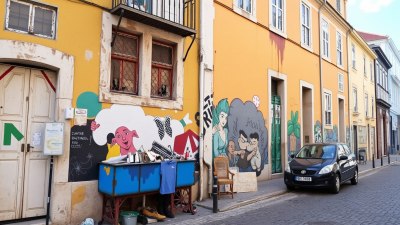What Electronics Work in Portugal Without a Converter
Discover which electronics are compatible in Portugal without using a power converter.

Traveling to Portugal can be an exciting adventure, filled with beautiful sights, rich history, and delicious cuisine. However, for those coming from abroad, understanding the electrical system and compatibility of your electronics is vital. This guide will provide you with essential information regarding what electronics work in Portugal without needing a converter.
Portugal uses a standard voltage of 230V and a frequency of 50Hz, which is common across many European countries. If you're coming from places like North America, where the standard voltage is typically 120V, you may need a voltage converter for electronic devices. However, if your devices can handle the higher voltage, they can be used without a converter.
Understanding Voltage and Frequency
Before diving into specific electronics, it’s essential to understand what voltage and frequency mean for your devices. Voltage is the force that pushes electric currents through wires, and frequency refers to how many times the current alternates per second. Electronics designed to operate at 230V will work directly in Portugal. Check the labels on your devices; they typically indicate the input voltage range.
Travel Adapters vs. Voltage Converters
Different from voltage converters, travel adapters only modify the shape of the plug to fit into a socket of a different type. They do not convert voltage. It is crucial to distinguish between these two devices. In Portugal, the socket types are primarily C and F, so you'll need adapters to fit your devices into the F and C outlets if they are equipped with a different plug type.
Electronics That Generally Work in Portugal
Many modern electronics are designed to work globally, meaning they can adapt to various voltage levels. Here are some electronics that typically function without a converter:
- Smartphones and Tablets: Most smartphones and tablets are dual voltage, meaning they can operate on both 110V and 220V. If your charger states an input range of 100V to 240V, you can safely use it in Portugal.
- Laptops: Similar to smartphones, the majority of laptops are built to handle various voltages. Checking the label on your charger will indicate if you can use it directly.
- Cameras: Most camera chargers operate at dual voltages, allowing them to be used in Portugal without a converter.
- Portable Gaming Consoles: Devices like the Nintendo Switch, PlayStation Portable, and others typically support dual voltage, making them safe to use when plugged into the correct adapter.
- USB Devices: Many USB chargers are designed to work globally, so as long as your device operates on 100-240V, you're good to go.
High-Voltage Equipment
There are certain devices that might not work in Portugal without a converter. Heavy-duty equipment like hair dryers, electric shavers, or curling irons often have motors and heating elements designed for North American voltages. Not checking the voltage can lead to damage or malfunction. Look for devices that specify they are dual voltage; these often have a switch or can automatically adjust to the local voltage.
Using Small Household Appliances
Many small appliances like electric toothbrushes, shavers, and some portable kitchen gadgets are designed for dual voltage operation. Again, check the voltage on the power supply. For these devices, using a travel adapter can allow you to use them without a converter.
Health and Medical Equipment
If you rely on medical devices such as CPAP machines, it is paramount to check their compatibility with the voltage in Portugal. Many newer models can operate on a range from 100V to 240V. However, it is always safest to consult your device's user manual or the manufacturer before traveling.
Things to Remember
When packing your electronics for a trip to Portugal, here are a few reminders:
- Check the Voltage: Look for labels that indicate voltage range.
- Bring Travel Adapters: Purchase necessary adapters that fit Type C and F sockets.
- Leave High-Power Devices at Home: Unless specifically dual voltage, it's better not to travel with high-power appliances.
- Battery-Powered Devices: Consider battery-operated devices as a backup where applicable.
Understanding the electrical compatibility of your electronics can streamline your travels to Portugal. By ensuring that your devices work on the local voltage, and bringing the right adapters, you can stay connected and powered. Enjoy your time in this wonderful country, and remember that preparation is key to a successful travel experience!











